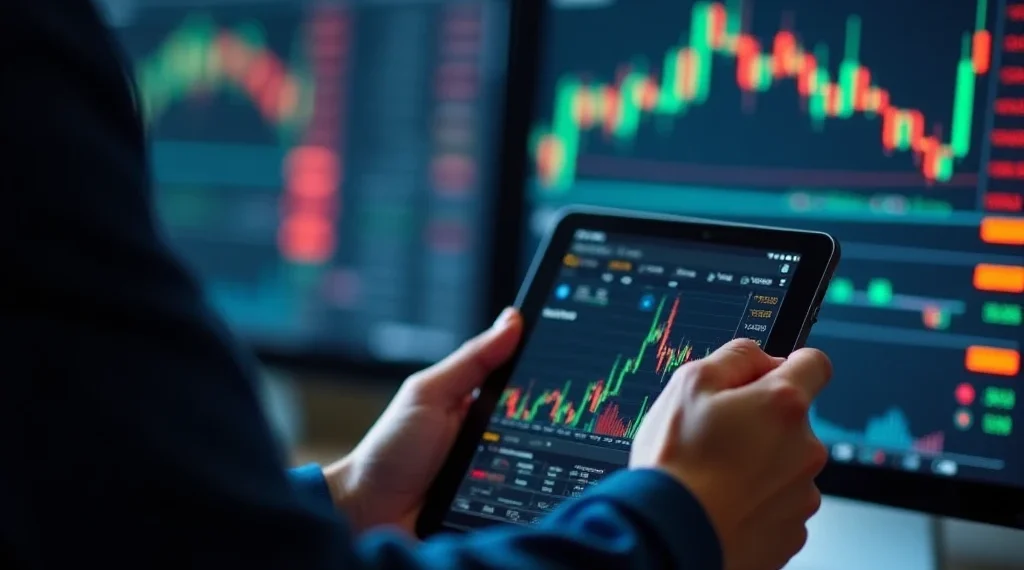<h1>Understanding Volatility Psychology in Cryptocurrency Trading</h1>
<p>With the cryptocurrency market witnessing a staggering <strong>40% price fluctuation</strong> in just a week, understanding the <strong>volatility psychology</strong> becomes increasingly crucial for traders. This article aims to dissect the volatile nature of crypto assets and provides insights into how traders can harness this knowledge for better decision–making.</p>
<h2>What is Volatility Psychology?</h2>
<p>Volatility psychology refers to the emotional and psychological factors that drive traders’ reactions to market fluctuations. Just as a <strong>fleeing animal reacts irrationally</strong> to a perceived threat, traders often make impulsive decisions during market swings.</p>
<h3>Emotional Responses to Market Fluctuations</h3>
<ul>
<li><strong>Fear of Missing Out (FOMO)</strong>: Traders rush to buy when prices soar, fearing they will miss potential gains.</li>
<li><strong>Panic Selling</strong>: In a downturn, markets can experience a flood of sell orders as traders fear further losses.</li>
<li><strong>Overconfidence</strong>: After a few successful trades, traders may become overly confident, leading to riskier investments.</li>
</ul>
<h2>Strategies to Manage Volatility</h2>
<p>It’s essential for crypto traders to develop strategies that mitigate the emotional impact of market volatility. Here are some approaches:</p>
<ul>
<li><strong>Set Clear Targets</strong>: Having defined entry and exit points can help traders stick to their strategies.</li>
<li><strong>Utilize Stop–Loss Orders</strong>: These orders can protect traders from significant losses during market fluctuations.</li>
<li><strong>Stay Informed</strong>: Regular updates on market trends ensure that traders are aware of potential volatility triggers.</li>
</ul>
<h3>Vietnam‘s Growing Crypto Market</h3>
<p>In Vietnam, user growth in cryptocurrency has surged, with a reported <strong>50% increase</strong> in active crypto traders over the last year. As more Vietnamese engage with crypto, understanding volatility psychology becomes essential for safe trading in this emerging market.</p>
<h2>Real–World Applications and Examples</h2>
<p>Consider the case of Bitcoin: after reaching an all–time high of <strong>$64,000</strong> in April 2021, it faced sharp corrections. Traders’ reactions were driven by a mix of greed and fear:</p>
<ul>
<li>Many bought at the peak, driven by excitement.</li>
<li>Following a significant drop in May, panic set in, leading to extensive sell–offs.</li>
</ul>
<p>This sequence illustrates how psychological factors influence trading behavior, echoing the essence of <strong>volatility psychology</strong>.</p>
<h3>Helpful Tools and Resources</h3>
<ul>
<li><strong>Trading Journals</strong>: Documenting trades and emotional states can aid in understanding personal reactions.</li>
<li><strong>Market Sentiment Tools</strong>: Platforms like <a href=“https://hibt.com“>hibt.com</a> offer insights into market sentiment that can help inform trading decisions.</li>
<li><strong>Risk Management Software</strong>: Utilizing platforms that provide risk assessments can help cushion against emotional trading.</li>
</ul>
<h2>Conclusion</h2>
<p>Understanding <strong>volatility psychology</strong> is vital for navigating the tumultuous waters of cryptocurrency trading. Armed with the knowledge of how emotions can skew trading decisions, traders can formulate strategies to mitigate risks and enhance their overall trading experience. As Vietnam‘s crypto landscape continues to evolve, mastering this psychology will empower local traders to engage with the market more confidently.</p>
<p><strong>As a final note:</strong> It‘s essential to always remain informed and cautious. This article does not serve as financial advice. Always consult with local regulators and engage with reputable resources such as <a href=“https://hibt.com“>hibt.com</a> for safety in your trading practices.</p>
<p>— Dr. Minh Nguyen, a cryptocurrency researcher and expert with over 15 published papers in finance and blockchain technology.</p>
<p>With the cryptocurrency market witnessing a staggering <strong>40% price fluctuation</strong> in just a week, understanding the <strong>volatility psychology</strong> becomes increasingly crucial for traders. This article aims to dissect the volatile nature of crypto assets and provides insights into how traders can harness this knowledge for better decision–making.</p>
<h2>What is Volatility Psychology?</h2>
<p>Volatility psychology refers to the emotional and psychological factors that drive traders’ reactions to market fluctuations. Just as a <strong>fleeing animal reacts irrationally</strong> to a perceived threat, traders often make impulsive decisions during market swings.</p>
<h3>Emotional Responses to Market Fluctuations</h3>
<ul>
<li><strong>Fear of Missing Out (FOMO)</strong>: Traders rush to buy when prices soar, fearing they will miss potential gains.</li>
<li><strong>Panic Selling</strong>: In a downturn, markets can experience a flood of sell orders as traders fear further losses.</li>
<li><strong>Overconfidence</strong>: After a few successful trades, traders may become overly confident, leading to riskier investments.</li>
</ul>
<h2>Strategies to Manage Volatility</h2>
<p>It’s essential for crypto traders to develop strategies that mitigate the emotional impact of market volatility. Here are some approaches:</p>
<ul>
<li><strong>Set Clear Targets</strong>: Having defined entry and exit points can help traders stick to their strategies.</li>
<li><strong>Utilize Stop–Loss Orders</strong>: These orders can protect traders from significant losses during market fluctuations.</li>
<li><strong>Stay Informed</strong>: Regular updates on market trends ensure that traders are aware of potential volatility triggers.</li>
</ul>
<h3>Vietnam‘s Growing Crypto Market</h3>
<p>In Vietnam, user growth in cryptocurrency has surged, with a reported <strong>50% increase</strong> in active crypto traders over the last year. As more Vietnamese engage with crypto, understanding volatility psychology becomes essential for safe trading in this emerging market.</p>
<h2>Real–World Applications and Examples</h2>
<p>Consider the case of Bitcoin: after reaching an all–time high of <strong>$64,000</strong> in April 2021, it faced sharp corrections. Traders’ reactions were driven by a mix of greed and fear:</p>
<ul>
<li>Many bought at the peak, driven by excitement.</li>
<li>Following a significant drop in May, panic set in, leading to extensive sell–offs.</li>
</ul>
<p>This sequence illustrates how psychological factors influence trading behavior, echoing the essence of <strong>volatility psychology</strong>.</p>
<h3>Helpful Tools and Resources</h3>
<ul>
<li><strong>Trading Journals</strong>: Documenting trades and emotional states can aid in understanding personal reactions.</li>
<li><strong>Market Sentiment Tools</strong>: Platforms like <a href=“https://hibt.com“>hibt.com</a> offer insights into market sentiment that can help inform trading decisions.</li>
<li><strong>Risk Management Software</strong>: Utilizing platforms that provide risk assessments can help cushion against emotional trading.</li>
</ul>
<h2>Conclusion</h2>
<p>Understanding <strong>volatility psychology</strong> is vital for navigating the tumultuous waters of cryptocurrency trading. Armed with the knowledge of how emotions can skew trading decisions, traders can formulate strategies to mitigate risks and enhance their overall trading experience. As Vietnam‘s crypto landscape continues to evolve, mastering this psychology will empower local traders to engage with the market more confidently.</p>
<p><strong>As a final note:</strong> It‘s essential to always remain informed and cautious. This article does not serve as financial advice. Always consult with local regulators and engage with reputable resources such as <a href=“https://hibt.com“>hibt.com</a> for safety in your trading practices.</p>
<p>— Dr. Minh Nguyen, a cryptocurrency researcher and expert with over 15 published papers in finance and blockchain technology.</p>

















